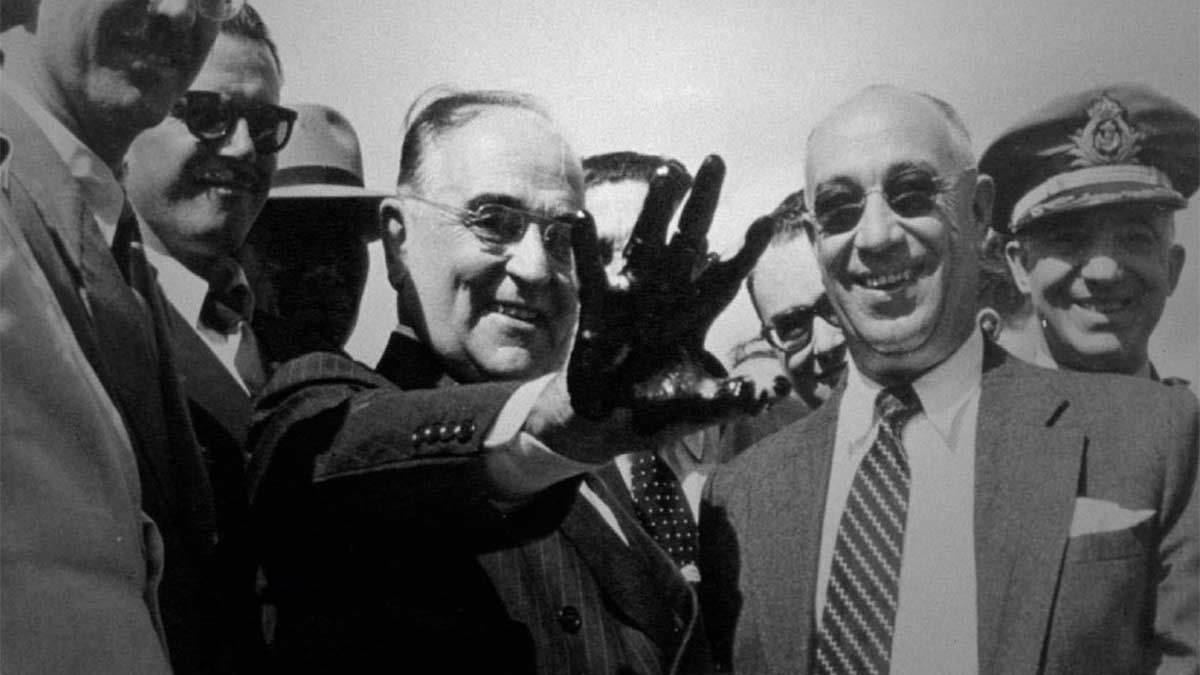The 2016 coup, which started with the delivery of Petrobras, culminates with the privatization of the state electric company, Eletrobrás.
By Leonardo Attuch*
In December 1994, on the eve of his presidential inauguration, then-Senator Fernando Henrique Cardoso took the podium to say goodbye to parliament. The speech went down in history because it announced what would be the main goal of his government: the burial of the Vargas era. “I firmly believe that authoritarianism is a page turned in the history of Brazil. There remains, however, a piece of our political past that still clutters the present and slows down the advancement of society. I am referring to the legacy of the Vargas Era, its model of autocratic development and its interventionist State”, said Cardoso.
As president, he privatized a lot but not everything. One of his dreams – that of transforming Petrobras into a private company called “Petrobrax” – failed. And, as everyone knows, he handed a broke Brazil firmly in the pocket of the IMF over to his successor, Luiz Inácio Lula da Silva. While announcing the discovery of the pre-salt off shore oil reserves, Lula and his then Minister of Mines and Energy, Dilma Rousseff, emulated a symbolic gesture of former president Getúlio Vargas by staining their hands with Brazilian oil, which they called the “passport to the future”.
But in a Brazil now controlled by entreguista oligarchs and the military, the pre-salt reserves have become a curse. Starting with the June protests in 2013 and billionaire-supported movements like Vem pra Rua, which was bankrolled by Ambev owner Jorge Paulo Lemann, the coup d’état against former president Dilma Rousseff began to move forward. The main goal was to transfer the income from pre-salt layer petroleum extraction from the Brazilian public into the hands of Petrobras’ private shareholders.
Shortly after Dilma’s departure, the first measure adopted by the usurper Michel Temer was to change the regulatory framework and price policies for petroleum and natural gas. Today these policies are a primary cause of Brazilian inflation and the fact that 33 million people are now suffering from hunger. With the 2018 elections, conducted by institutions controlled by oligarchs that supported Lula’s arrest, Jair Bolsonaro and Paulo Guedes arrived in power with the mission to deepen Fernando Henrique Cardoso’s agenda of “burying the Vargas era”.
Until recently, the only criticism leveled by the neoliberal and corporate media against Guedes was the fact that he had not delivered any relevant privatization. Unemployment, mediocre growth and inflation were not the problem. On the night of Thursday, June 9, Guedes finally managed to deliver a privatization: that of Eletrobrás, sold in the dead of night and at a cut-rate price.
Built with the blood, sweat and tears of the Brazilian people, Eletrobrás is now controlled by local and international funds. The largest private shareholders are now the 3G group, owned by Jorge Paulo Lemann and his partners at Ambev, and Banco Clássico, owned by José Abdalla Filho. The delivery of the company by Jair Bolsonaro has not been designed to guarantee cheap energy for Brazilian development. On the contrary: it is an underdevelopment project, which aims to make Brazilians more energy efficient in order to guarantee returns to shareholders, who are already billionaires.
Bolsonaro may not have the same education level as Fernando Henrique Cardoso, but he has been much more efficient in carrying out his economic agenda, which consisted of destroying the Brazilian state to enrich a small group of parasitic oligarchs. In practice, he managed to bury the Vargas Era, that of a nationalist former president who, in his famous final letter, pointed out the forces behind his suicide. “I wanted to create national freedom in the enhancement of our wealth through Petrobras and, as soon as it started to work, a wave of agitation swelled. Eletrobrás was obstructed to the point of despair. They do not want workers to be free”, wrote Vargas.
These forces that drove Vargas to suicide are the same forces that overthrew Dilma and imprisoned Lula. And when the former president returns, if he does, they will be united, sponsoring newspaper editorials to try to convince Brazilians that Petrobras’ pricing policy cannot be changed and that “contracts”, such as the privatization of Eletrobrás, cannot be undone.
In his suicide note, Vargas sent a message to the future.
“I choose this way of always being with you. When you are humiliated, you will feel my soul suffering at your side. When hunger knocks at your door, you will feel the energy in your chest fight for you and your children. When they vilify you, you will feel the strength to react. May my sacrifice keep you united and may my name be your banner of struggle. May every drop of my blood be an immortal flame in your conscience and uphold the sacred vibration for resistance. To hate I respond with forgiveness. And to those who think they have defeated me, I answer with my victory. I was a slave of the people and today I free myself to eternal life. But the people whose slave I was will no longer will be anyone’s slave. My sacrifice will forever remain in your soul and mine. blood will be the price of your ransom. I fought against the ruin of Brazil. I fought against the ruin of the people. I have fought with an open heart. Hatred, infamy and slander did not break my spirit. I gave you my life. Now you I offer myself in death. I fear nothing. Serenely I take the first step on the path of eternity and leave life to enter history.”
*Leonardo Attuch is Editor of Brasil 247
This article, which was translated by Brian Mier, originally appeared in Brasil 247 and can be read in its original Portuguese here.
[qpp]

